Performance Assessments: How State Policy Can Advance Assessments for 21st Century Learning
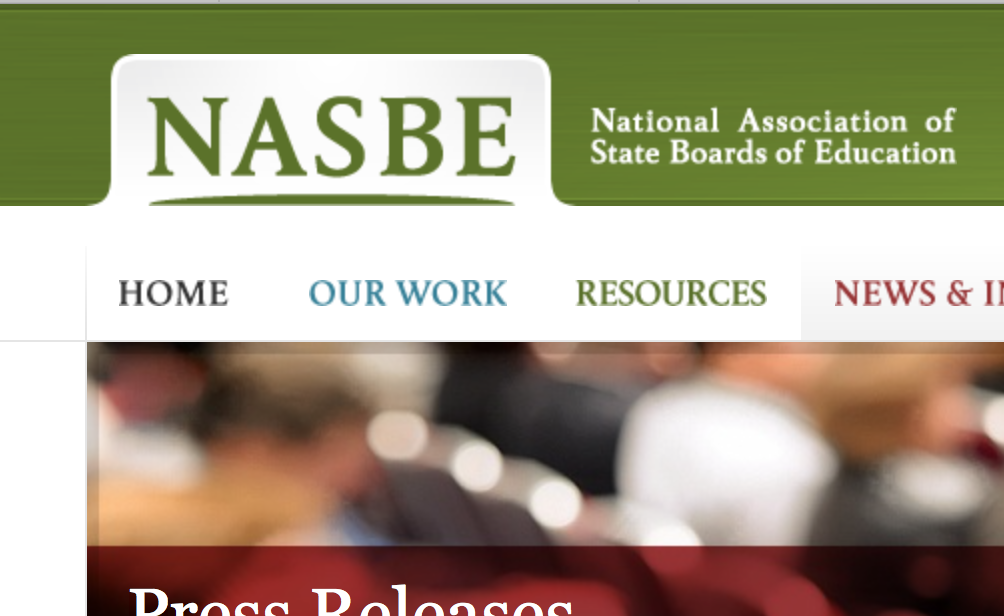
This report is intended to familiarize state boards of education with performance assessments and help state board members and other policymakers address some of the thorniest issues around these assessments: purpose, sustainability, reliability, accountability, policy alignment, equity, professional practice, and implementation. The report ends with a set of discussion questions so that each state can… Read More ›
Accountability for College and Career Readiness Developing a New Paradigm
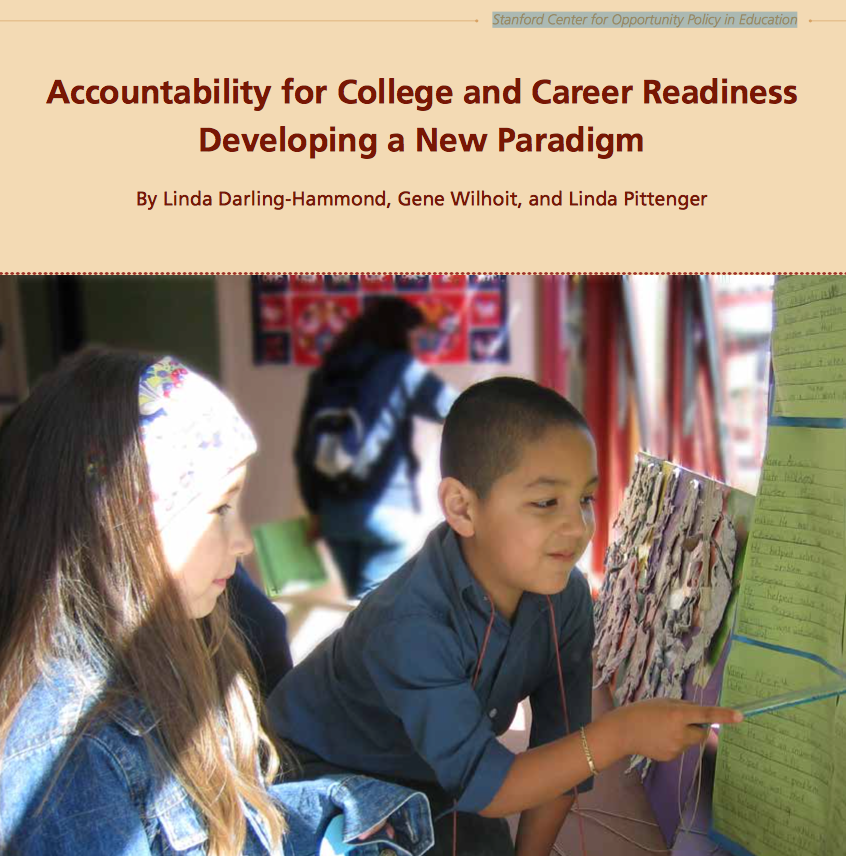
This report—due to preparation for new standards under the Common Core and states moving toward creating more aligned systems of assessment and accountability—recommends an accountability approach that focuses on meaningful learning, enabled by professionally skilled and committed educators, and supported by adequate and appropriate resources, so that all students regardless of background are prepared for… Read More ›
Measuring What Really Matters

This article proposes the improvement of state accountability systems through the use of performance assessments. They conclude that unlike multiple choice tests, performance assessments can thoroughly asses the Common Core State Standards and the Next Generation Science Standards which require demonstration of more complex thinking and reasoning skills. The authors also explore the technical quality, practical,… Read More ›
Making Mastery Work: A Close-Up View of Competency Education
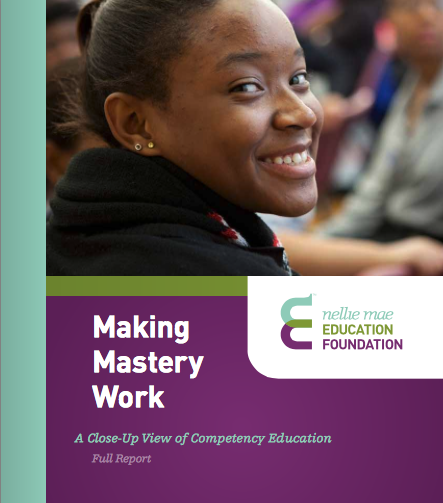
This report focuses on the experiences of students, teachers, and administrators in a select, but varied group of schools that are ahead of the curve in implementing competency education. A team of researchers spent a year and a half examining 11 high schools in New England. The report is organized in sections that provide both… Read More ›
Supporting Students: Investing in Innovation and Quality
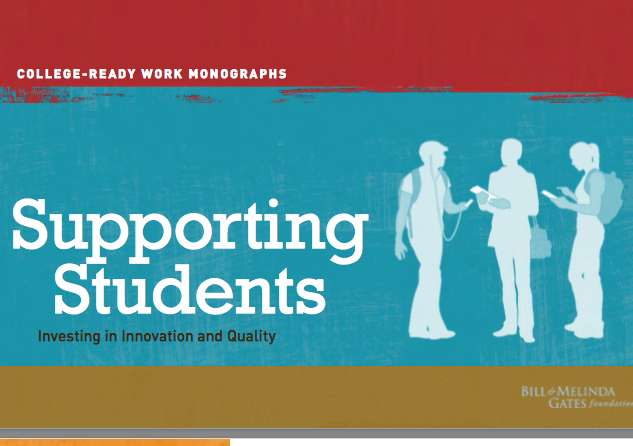
This report describes the approach of the College Ready group at the Bill and Melinda Gates Foundation. It outlines five key design principles necessary for successful academic student supports. These include mastery with clear progress trajectories, feedback which occurs immediately, subject immersion using the real-world language and tools of the studied discipline, multiple experiences to learn and apply… Read More ›
Necessary for Success: Building Mastery of World-Class Skills – A State Policymakers Guide to Competency Education
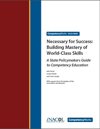
This report by Susan Patrick and Chris Sturgis describes competency-based systems and reforms in districts and schools from Maine to Florida, and makes suggestions for education leaders around changing policy, fostering progressive public discourse, and supporting teachers. Source Organization: Nellie Mae Education Foundation Visit the Resource
An International Study in Competency Education: Postcards from Abroad
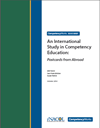
This report by Susan Patrick and Sara Frank Bristow highlights components of competency education in international practice, to inform U.S. policymakers and decision makers seeking to implement high-quality competency pathways at the state or local level. The report includes a brief lesson in the international vocabulary of competency education and explores practices in Finland, British Columbia… Read More ›
A K-12 Federal Policy Framework for Competency Education: Building Capacity for Systems Change
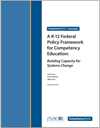
This report provides federal policymakers with a comprehensive vision for supporting state and local efforts to implement student-centered learning. The authors describe barriers and opportunities within federal education policy education policy frameworks, and identifies how the federal government is in a unique position to catalyze and scale student-centered learning. Source Organization: Nellie Mae Education Foundation Visit… Read More ›
Education Indicators for Maine 2015

In this report from the Nellie Mae Education Foundation, Educate Maine examines 10 indicators around education access, achievement, and participation for Maine students. Beyond promoting discussion, this paper serves as a call to action for increasing engagement, positive dialogue, and support for promising strategies amongst stakeholders so all Maine’s students receive the education they deserve.… Read More ›
Educate Maine
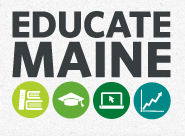
This organization is a business-led education advocacy organization. Its mission is to champion college and career readiness and increased education attainment. It works to see all high school students graduate career and college ready and to increase the number of Maine workers with a postsecondary degree or certificate credential. Educate Maine advocates for policy initiatives that… Read More ›
Expanded Learning Time Innovation in Massachusetts Schools
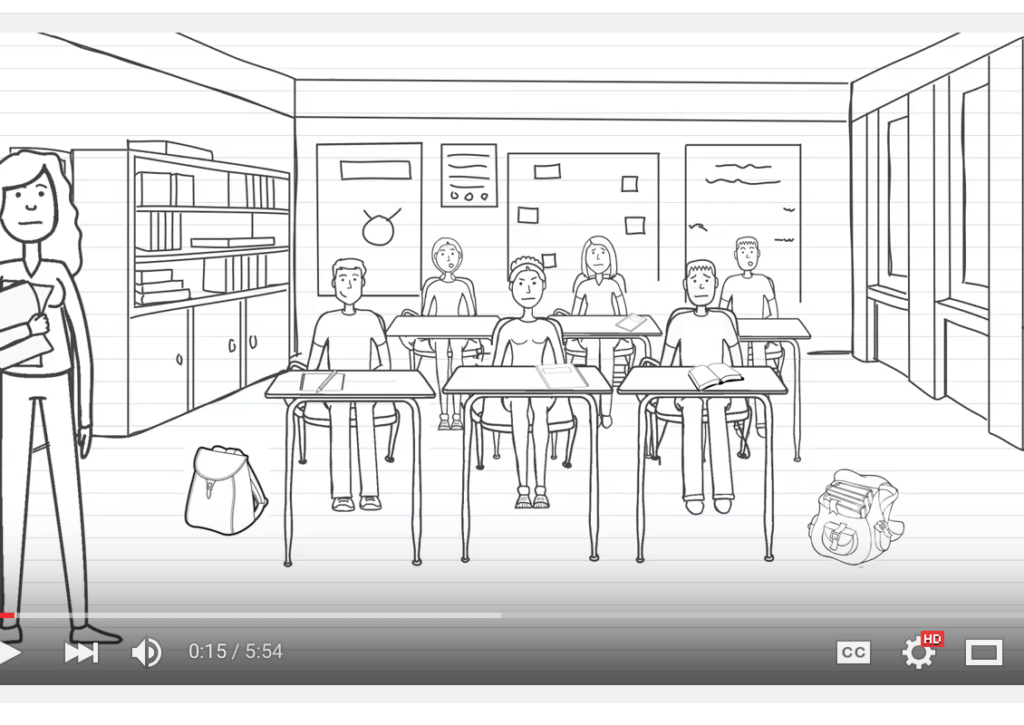
This video highlights the successes of schools in Massachusetts implementing an expanded day, adding up to 300 hours to the school year. Using many school examples, the narrator explores the innovations possible with an expanded day such as more personalization, use of technology, curriculum that focuses on problem solving and embraces the common core standards,… Read More ›
Massachusetts’ Plan for Excellence in STEM Education 2.0: Expanding the Pipeline for All
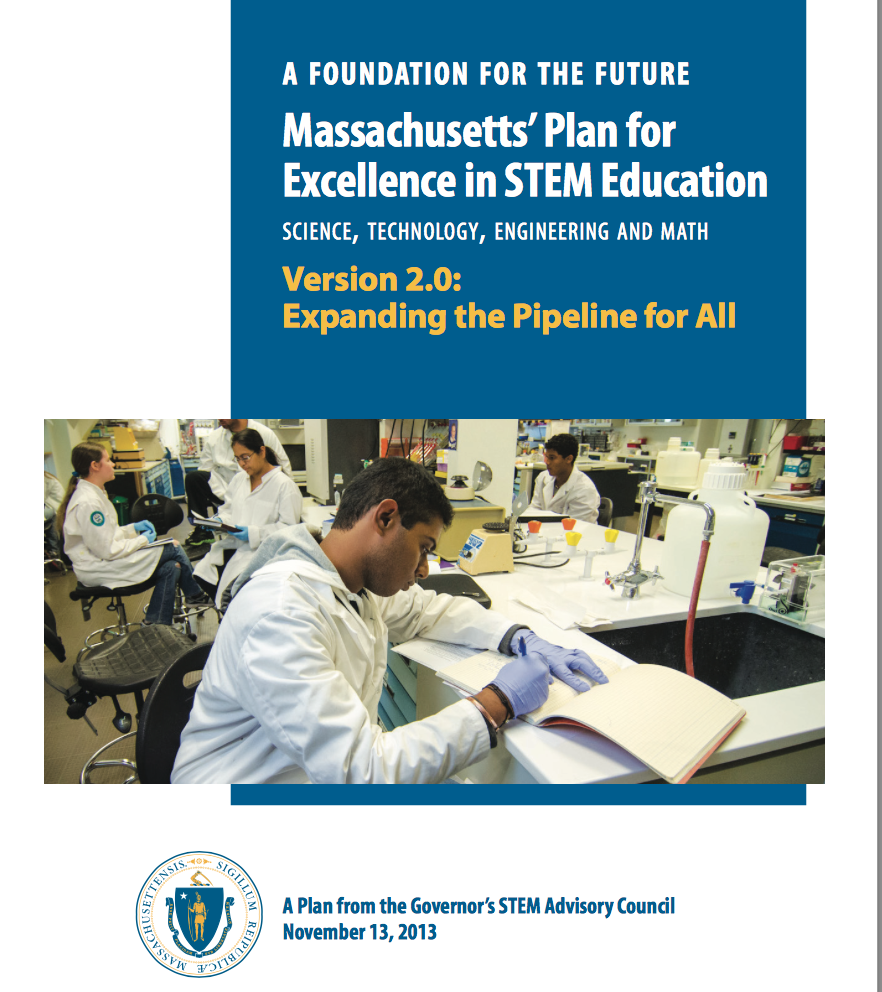
This plan, published in 2013 by Massachusetts’ Governor Deval Patrick’s STEM Advisory Council builds on the first strategic plan written in 2010 to establish infrastructure and build support for STEM education in Massachusetts. This plan lays out five goals, including increasing interest in STEM, student achievement, number of skilled k-16 STEM educators, and percentage of STEM… Read More ›